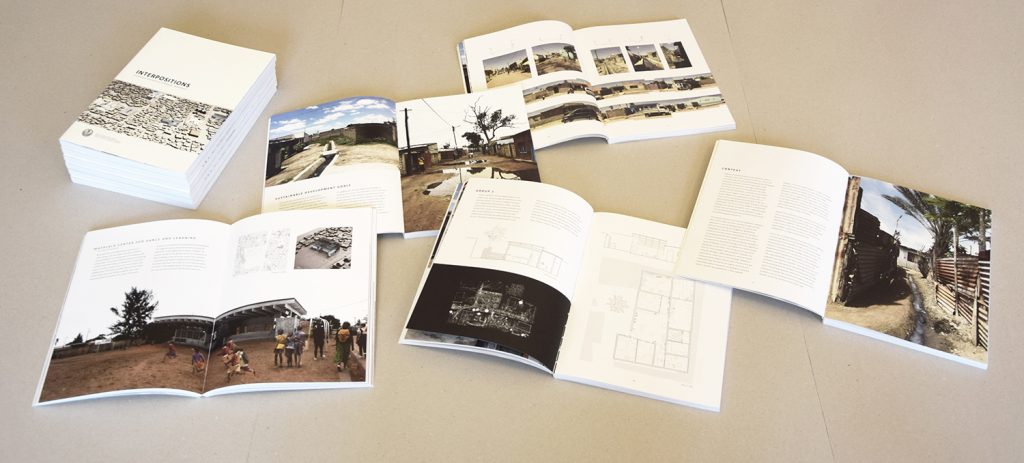
This publication contains the works of 3rd year architecture students attending KADK – The Royal Danish Academy of Fine Arts, Schools of Architecture, Design and Conservation – Institute of Architecture, Urbanism and Landscape. The students produced the presented material while developing their individual bachelor thesis projects, comprising community center designs in the informal settlement Mafalala, located in Maputo, the capital of Mozambique.
Mozambique is a developing country located in South East Africa. Mafalala is the most centrally located informal settlement in Maputo and is characterized by urban deficiencies such as insecure tenure, overcrowding, substandard housing, as well as lack of sewage and stormwater management systems. The students engaged in discussions addressing the many challenges facing the neighborhood through architectural interventions setting a framework for public life within the complex urban context.
The students initiated the assignment with fieldwork in Maputo in order to examine and understand the urban setting. After returning to the academy, they defined the program of their projects, developed spatial diagrams, and produced abstract interpretations of the context. Subsequently, they did massing models in urban scale, along with detailed tectonic models. During this process, they focused on producing site-specific readings of the urban context, cultivating building details, and developing original architectural syntaxes. Finally, the students detailed their projects in plan, section, elevation, and 3D, as well as presented their work in text, drawings, and models.
The semester focused on solving the programmatic complexity of a community center in the specific urban context, while producing cohesive architectural syntheses. While developing their projects, the students discussed problems and themes relating to the UN Sustainable Development Goals, including issues such as education, job creation, climate change, sustainability, and health. Interdisciplinary collaboration was an inherent theme throughout the semester, combining a research based context specific hands-on approach- with an abstract and artistic approach to the architecture profession. Accordingly, this publication reflects upon cultural understanding, societal analysis, technical knowledge, and artistic processes, which underpin a holistic understanding of the architecture profession embodied in the work of the students.